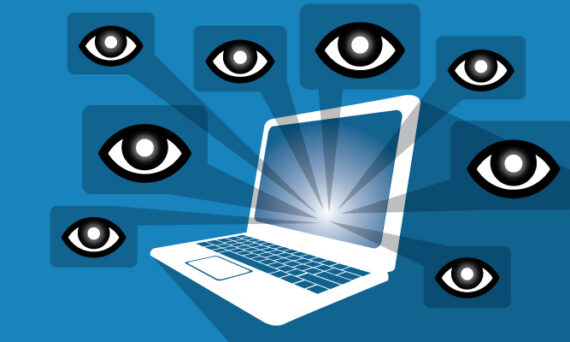Best Ways To Protect Online Privacy
With cyber crime rapidly increasing, online security and privacy is of utmost importance these days. A security threat can expose your valuable data, private pictures, and even financial details. However, you can overcome these challenges simply by adopting the right measures at the right hour. All you need is to take control over data. Today we will discuss how you can improve your privacy in the digital realm.
Privacy Settings
Having social media accounts is no big deal nowadays but are you falling short in the security domain? If you have not gone through the privacy policy before hitting the “accept’’ button, you perhaps don’t know how much information is visible to anybody around the web by default. This is why we recommend you to manually check the privacy settings and modify as required.
For instance, you may not want the strangers to check out your profile or download your picture. You can lock your profile or posts in to prevent them from doing so. Also, you may want to keep some posts private while keeping the rest for public display. You can accomplish that as well. The same holds true for all your personal information like contact number, email address, date of birth and so on.
If you are reading this blog, we want you to change the privacy settings in all the social media accounts you have. From Facebook to LinkedIn, Instagram to Twitter – social media threats are everywhere.
Don’t keep private info in public drive
This is the golden rule to protect privacy. When you are storing any private information in a publicly accessible portal, you are risking your security. Let us discuss two situations. Firstly, you shouldn’t store any private information in your office or lab computer. Even if that computer is given to your house for a convenient access, remember that you are always under supervision while using that. So, it’s better not to keep any personal data or private pictures in those places. Secondly, you should not keep your list of passwords in Google Docs or your scanned passport copy in the Google Drive or OneDrive. Needless to say that you shouldn’t rely any third party app or website to store sensitive documents.
Turn off tracking
Every phone has a tendency to turn on the GPS tracker every now and then. That’s because the service providers of customized service as per demography. A service from the same app (say, Amazon) display different discounts or products availability in India and UK. Sometimes the service even changes with the change of cities.
Now, when the GPS tracker is open, all the apps and websites you access can track your device. You never know which threat is lurking behind a third party website. That’s why it’s better to turn off the location when you don’t need it. Say, you have ordered food delivery with Zomato. The moment you get the food delivered, it’s better to turn off the phone location tracker.
Say no to browser caching
Once you visit any website, your browser stores a lot of data and your surfing history. Also, the accessed website seeks to capture your browser data in the forms of cookies so that the next time you visit, you can get a seamless experience. This also enables the website owners to send you notification every now and then. To avoid exposing your data, it’s better to “decline cookies” instead of access. Yes, it demands you to take a few seconds to hit the right button but your security is worth all the efforts.
Consider thrice before downloading an app
Once you download the app, you give it all the permissions to access your data (including pictures and docs) stored in your phone. If your phone contains sensitive information, think more than once before you install an app. Also, rely on Google PlayStore or Apple App Store for downloading the apps instead of third party sites. We recommend you to download only the relevant apps that you actually need. It’s better not to download any app just for the sake of hype.
Rely only on HTTPS
HTTPS or Hyper text transfer protocol security validates the security of any website. It’s when the site conforms to the standard security measures and buys verified SSL (security sockets layer) certificate, their website displays HTTPS and a green padlock sign in the URL bar. The sites that don’t conform to these or don’t purchase an SSL certificate, shows “not secured” on the URL bar. It’s better to rely on the former instead of the latter. If you are looking for any information or need to register your email id, opt for the former kind of websites.
Follow these crucial tips and you are good to go. Don’t panic. It’s time to be strategic. Hope you have found the article informative. Stay safe.
